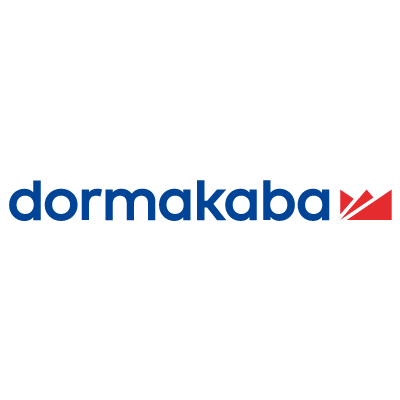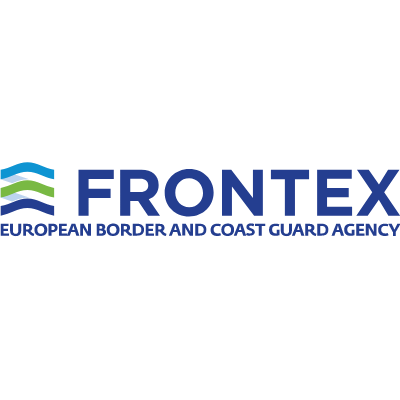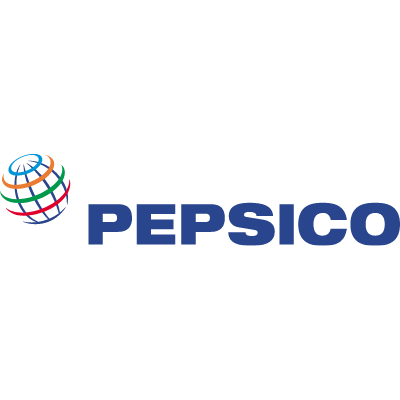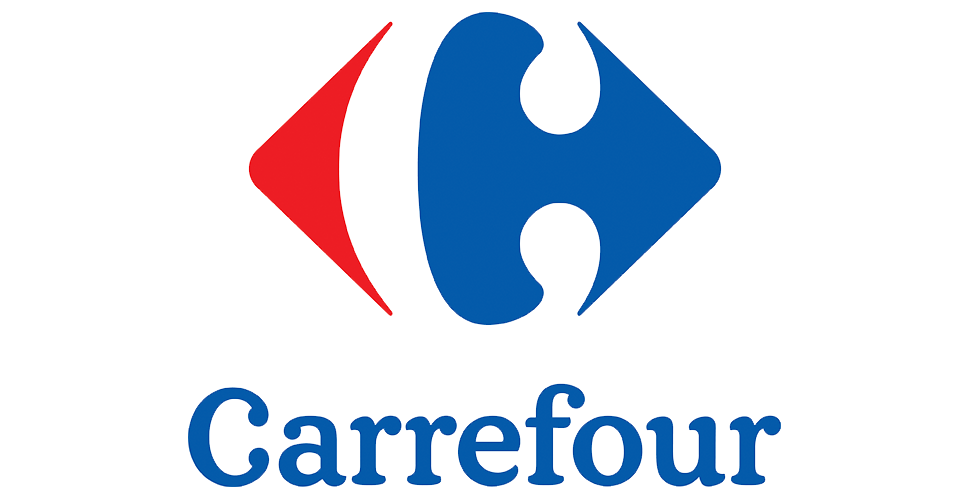Blockchain technology has become a real game changer in the global market. Although it is mainly associated with finance, companies from many different industries use it too. We have collected some interesting case studies showing how blockchain can change business.
Growing interest in business blockchain solutions
According to a report by the Business Research Company, the global blockchain market grew from $5.94 billion in 2021 to $10.13 billion in 2022 at a compound annual growth rate (CAGR) of 70.6%.
The predictions of Grand View Research assume that the CAGR values between 2022 and 2030 will reach a level of 85.9%. This means that the blockchain market will be worth as much as$1.4 trillion in 2030.
Almost half of the current growth of the blockchain market is accounted for by the financial industry, for which the distributed ledger technology (DLT) seems to have been created. However, other industries are also interested in these solutions.
The increase of interest in blockchain can be seen clearly in, for example, the healthcare industry. According to BIS Research, the value of spending by healthcare companies on blockchain technology will reach $5.61 billion by 2025. These forecasts are credible considering that in a Deloitte survey, 40% of senior executives working in the industry considered blockchain implementation as a “top 5” strategic priority.
Another industry that is eager to invest in blockchain technology is transportation and logistics. According to forecasts, the CAGR of those solutions will be 39.78% in the years 2022–2027. This means that the blockchain market in the industry will reach $2.2trillion.
However, interest in enterprise blockchain platforms is visible in many business areas, such as retail, media, entertainment, and production. Let’s pay take a look at some specific solutions implemented by big players.
Read more on blockchain technology and its business applications:
How blockchain provenance tracking can help to track conflict minerals
Is blockchain in supply chain management a real disruption or just hype?
How to build a blockchain app for tracking of manufactured parts
IBM’s enterprise blockchain platform in the time of COVID-19
Permissioned blockchain brings unique solutions in privacy protection. This is especially important with such sensitive data as information about individuals’ health. The IBM blockchain application Digital Health Pass allows for sharing health credentials regarding COVID-19 with selected institutions, companies, and individuals. The data is collected in a secure digital wallet, which ensures its complete safety. Only the wallet’s owner has access to the data and can decide whom to share it with. Thanks to this permissioned blockchain solution, a company can verify whether a person can gain access to its site. This is used, for example by Amadeus, a reservation system used by 474 airlines, in its Traveler ID for Safe Travel service. Airports have struggled with the problem of passengers presenting COVID-19 certificates in many formats and languages. Verifying these documents was difficult and time-consuming for airline agents, while travelers were forced to wait for long hours to get the flight permission. The IBM blockchain platform allows travelers to present a certificate at airports using a smartphone application. They receive a QR code by email, which they scan at the gate. Their certificates are authenticated by a system that adapts to the frequently changing requirements of the destination country. The IBM solution is based on Hyperledger Fabric—an open-source enterprise DLT. It is a private, permissioned blockchain solution, which means that only authorized users have access to the blockchain network. This significantly increases security because it is easy to identify who is behind the changes made to the database. Hyperledger Fabric focuses on privacy. The user may not share their data with anyone or create subnets (channels) to make them available only to selected users. The solution is based on smart contracts, but here their execution is much more efficient than in other systems because it requires the involvement of only selected network nodes, not all of them. This is another reason, apart from privacy and flexibility, why Hyperledger Fabric is often used in enterprise projects.
Renault—a blockchain solution in the automotive industry
French car manufacturer Renault needed a solution that would allow it to meet the technical requirements of European regulatory authorities. For this purpose, each of the car parts produced by many suppliers must meet precisely defined standards. Renault, together with partner companies, solved this problem by creating the XCEED blockchain platform. Its task is to certify the thousands of parts that are needed to produce a car. The open-source blockchain solution allows for the exchange of compliance information and grants traceability to the supply chain. At the same time, it guarantees the confidentiality of data and respect for the intellectual property of suppliers. XCEED optimizes business processes related to compliance, as verification of part properties is fully automated. Renault is counting on a 10% reduction in the costs associated with managing these processes and a 50% reduction in the number of cases and the costs of non-compliance. The company has been working on blockchain technology since 2015. According to Odile Panciatici, expert-leader of the Blockchain Project, Renault has now identified 20 areas where it can implement the technology—from traceability to trusted financial transactions. These digital asset solutions are expected to significantly improve the quality of the enterprise’s cooperation with its partners.Allianz—distributed ledger technology used for car insurance
One of the leading companies in the insurance area, Allianz introduced a blockchain solution in 2021 to facilitate the handling of international claims related to motor insurance. It simplified the cooperation between the company’s subsidiaries and speeded up procedures. When an insured person in one European country is involved in a car accident in another country, subsidiaries in both countries must handle the claim. This led to lengthy email exchanges, which was time-consuming and significantly delayed the payment of compensation. To solve this problem, Allianz created a solution based on Hyperledger Fabric. It eliminates the need to carry out procedures that previously could take months. Business processes are executed instantly. The system built by the company is based on smart contracts, which enhances greatly system performance. And because it is a private permissioned blockchain solution, users are assured of data security. According to Allianz Technology’s chief architect, Bob Crozier, blockchain technology can be used in many business processes in the insurance industry. One example is shortening transaction time, which can be seen in the company’s solution. Blockchain also offers the opportunity to detect fraud more effectively by being able to check for duplicate claim notifications. In addition, it enables secure and verified exchange of data between contractors.
Walmart—how blockchain technology is changing supply chains
One of the crucial problems Walmart faced was monitoring the origin of the food sold. When diseases are transmitted by food, it is necessary to be able to quickly identify which batch of a product and which producer is responsible for the problem. If the product can be identified quickly, the relevant part of the store’s stock can be withdrawn immediately, thus stopping the spread of the disease. The possibility of accurately indicating the origin of, for example, lettuce infected with bacteria means that there is no need to remove all vegetables of this type from stores. Consumers will be able to buy unaffected stock without worry, and farmers will be protected from large losses. Identification of food origin using “traditional” methods usually takes many days. It requires contacting suppliers and distributors and getting paper documentation. To simplify and accelerate this process, Walmart partnered with IBM. Together, they developed a blockchain platform based on Hyperledger Fabric. Tests of the solution carried out on two types of products ended with spectacular success. The tracing time has been reduced from 7 days to 2.2 seconds. This encouraged Walmart and IBM to expand the system to other companies. This is how IBM FoodTrust was born. It is a system connecting companies related to the entire food supply chain, from growers and breeders to retailers. Using permissioned blockchain platforms, they get access to unmodifiable, shared data and transactions. It is also easier for them to comply with legal regulations regarding the marketing and production of food, such as those introduced in the United States by the FDA (Food and Drug Administration).
Blockchain’s alliance of pharmaceutical giants
The FDA was also the author of a pilot program for drug and vaccine trading, which proved the effectiveness of blockchain technology. It involved IBM, KPMG, Merck, and Walmart. The program was to investigate how blockchain can help meet the requirements of the US Drug Supply Chain Security Act (DSCSA). The DSCSA deals with the verification, tracking, and traceability of prescription drugs and vaccines distributed in the United States. Its goal is to increase patient safety, e.g., by combating the sale of counterfeit drugs. The act requires supply chain participants to provide a digital record of all pharmaceutical transactions. The solution created during the project was based on the IBM blockchain platform (using Hyperledger Fabric) integrated with Merck’s industry-standard serialization system (consisting in assigning a unique serial number to each product unit). Its use has shown that blockchain technology can effectively connect various types of organizations, shortening the drug identification time. It is possible to precisely trace a drug supply chain, so there is no doubt as to the authenticity of the product or the course of its storage. As a result, it is possible to prevent, for example, the placing on the market of improperly stored drugs. IoT (Internet of Things) devices, such as sensors connected to the Internet, can transmit data on, for example, the cold chain to blockchain-based databases. The success of the program led the companies to establish a consortium called the Pharmaceutical Utility Network. It is currently investigating how blockchain technology can not only be used to achieve regulatory compliance and supply chain tracking, but also to prevent drug shortages and secure the identity of patients participating in clinical trials. One application of the IBM enterprise blockchain platform created by the consortium is to speed up the withdrawal of a drug from the market. The solution allows users to inform supply chain participants instantly about the withdrawal of a drug (or of only a specific batch), which reduces the risk that it will be released to patients.
Smart contracts streamline processes at Hitachi
On the one hand, paper contracts are a good guarantee of credibility—they bear original signatures and cannot be modified. On the other hand, it takes a lot of time to send and process them (not to mention the ecological aspect of using a large amount of paper). Hitachi is a corporation with 873 companies in 100 countries. Because of the size of the organization, the number of contracts it produces can reach thousands per month. How can you get rid of the need to use so much paper, accelerate business processes, and save staff time? The solution is blockchain. A permissioned blockchain platform guarantees data cannot be modified and that all interested parties have remote access to it. Traditional contracts can therefore be turned into digital assets that will continue to be trusted and secure. Hitachi has already benefited from this modern technology in financial and industrial fields of activity. The company had confidence in it and considered blockchain a technology with further development potential. The platform it chose was Hyperledger Fabric. The contract solution is based on a blockchain-based electronic signature (ESS). Each signature, defined by the date, time, and operation history, is verified and saved in the blockchain database. Contracts can also be authorized biometrically using Hitachi’s PBI (Public Biometric Infrastructure) technology. Moving contracts to the digital world brings great savings. Hitachi estimates that by 2023, when the Hyperledger Fabric solution will have been implemented in all of the company’s procurement divisions (it was initially tested only in the procurement division of Hitachi’s head office), its employees will be able to devote about 1,200 hours a month to other activities than processing contracts.
Enterprise blockchain marketplace of Mercedes—how to sell data effectively
Companies currently collect huge amounts of data that they can use to optimize their business processes and increase competitiveness. The data itself also has a market value. However, to sell it, you need a secure, transparent, and convenient system. Mercedes-Benz met this need with its project Accentric Data Marketplace. This is a platform that allows companies to trade data using blockchain technology. It allows for the decentralization of the main database and the credibility of the digital assets in the marketplace. Data is sold as tokens and on the basis of smart contracts concluded between users. One of the unique features of the solution is Compute-to-Data, which allows companies to perform calculations on supplier data. This is made possible by the Web3 Ocean Protocol platform. The calculations are carried out without the risk of revealing data—the buyer of the service uses the data but does not have direct access to the database. Ocean Protocol is also responsible for managing tokens and smart contracts.









